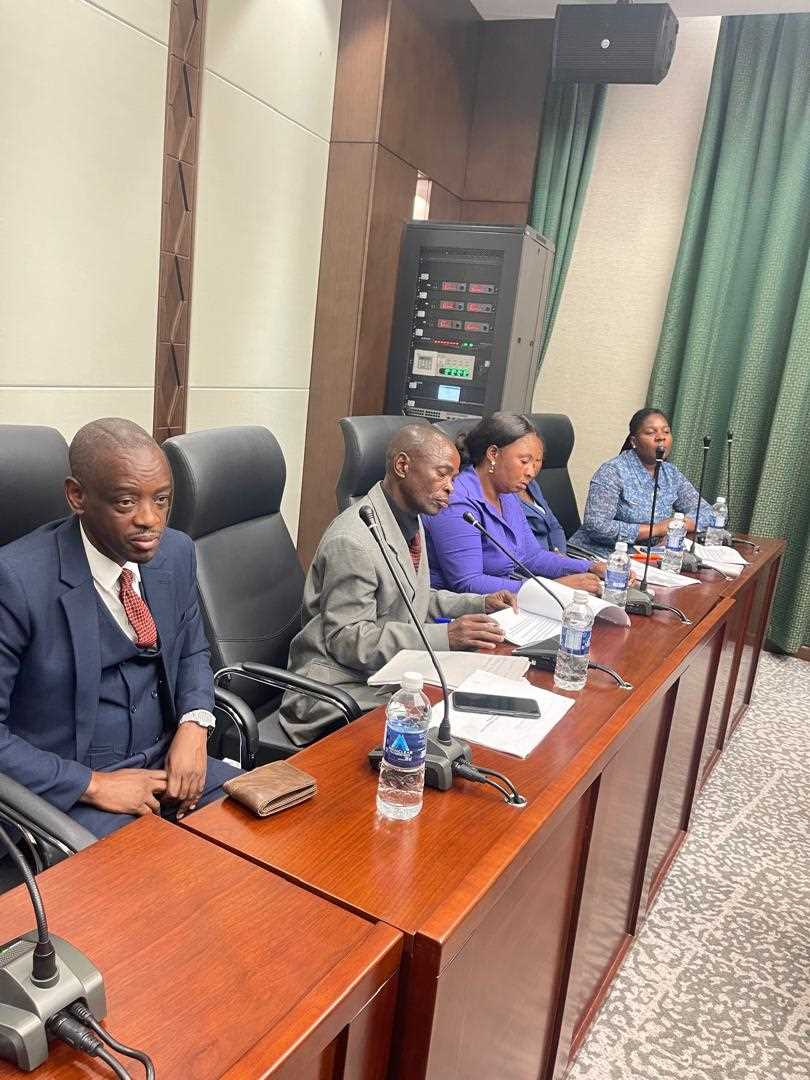
Zim Now Reporters
Foreigners running businesses in Zimbabwe have welcomed the High Court ruling nullifying Section 8(1) of the Immigration Act which allowed the detention of foreign nationals for up to 14 days without trial, saying it grants them relief from bribe seeking officials.
In his determination in a case brought by Tatenda Chakabva, who argued that this practice violates people’s rights and dignity, High Court judge Justice Christopher Dube-Banda said this was tantamount to arbitrary detentions which are against international and regional conventions ratified by Zimbabwe.
A Central African shop owner in the CBD who asked not to be identified for fear of victimisation said Immigration officers had become a mafia, using the threat of arbitrary arrests to force foreigners to pay “protection fees.”
“We are very happy to hear that they can no longer just arrest people. Because they would come and say there is something wrong with your papers. Even when you have a work permit. They would threaten to arrest you and then deport you just like that. So we would just have to pay them all the time,” he said.
He said two colleagues from West Africa who refused to pay bribes were picked up and deported without ever going to court to argue their cases.
His allegations are supported by a case that Zim Now has evidence of in which a foreign national based in Mashonaland West was arbitrarily arrested and thrown into Chikurubi Prison in July this year.
The person who was in possession of a valid work permit expiring in 2025 was detained with no legal procedures being taken and ordered to buy a plane ticket for themselves and their dependent immediately, even though they had ignored a lawyer who was in the process of lodging an urgent court application against deportation.
In spite spending the night in prison, the foreign national only got booked just before release, which came about after intervention had raised red flags in high offices.
“The extent that S8(1) permits 14 days detention without judicial oversight actually authorises arbitrary detention,” ruled Justice Christopher Dube-Banda in his determination.
On random days at the airport, one could bump into officials treating foreigners who had overstayed in the country like base criminals, escorting them to their plane. But first would be the dehumanising and humiliating public spraying with delousing chemicals at the departures entrance because the foreigners would have been exposed to lice and other bugs in prison.
Related Stories
According to IOM, between 2010 and 2016, the Government of Zimbabwe issued 18,436 TEPs to foreign nationals from 74 countries, with the majority (11,272) issued to Chinese nationals accounting for 71% and South Africa 1,859, followed by India and Zambia.
Thus Chinese nationals in Zimbabwe are b.
The Chinese community, who by statistics are the largest body of foreign nationals in the country and most affected by immigration policies, have welcomed the ruling saying that it fosters a better society.
“This is very good news and a milestone. It is not only the improvement and promotion of the legal system of law, but also the respect for human rights. This is also a warning to individual law enforcement officers not to arrest anyone without a court ruling, which is a great respect and progress for human rights, the legal system and a harmonious society,” said Mr Wang Xinju of the Chinese Mutual Aid Foundation.
Another Chinese business leader said while this is commendable, there is need for a similar clean-up of systems at the national revenue authority to ensure a more conducive business environment.
Fujian General Business Association secretary Mr Wufeng Nian said Immigration and Zimra have been prosecuting foreigners in the country, particularly targeting Chinese nationals and there is need to close legal loopholes that are used by officials from the authorities to set up institutionalised bribe scams.
“Now investors are starting to leave Zimbabwe in search of investment environments in other countries. This is something we don't want to see,” said Mr Wufeng.
Although the Immigration Department contested the application, citing national security threats, Justice Dube-Banda there are better ways to handle the situation without violating people’s rights.
“Whether it is called administrative detention or arbitrary detention, it is prohibited under international and regional conventions. In the circumstances, it is clear that S8(1) is in violation of both international and regional conventions,” he said.




















Leave Comments